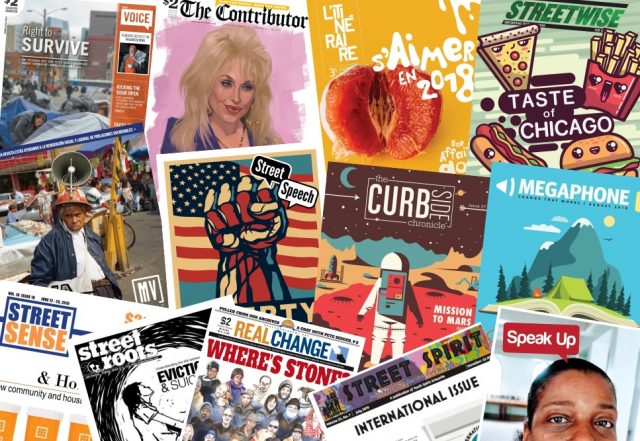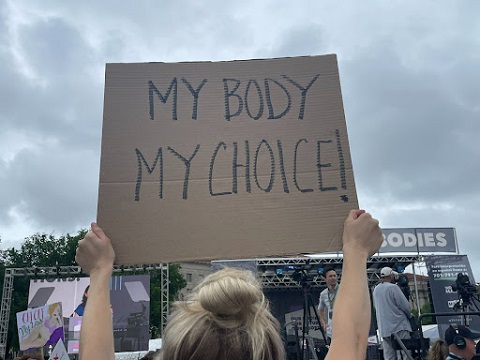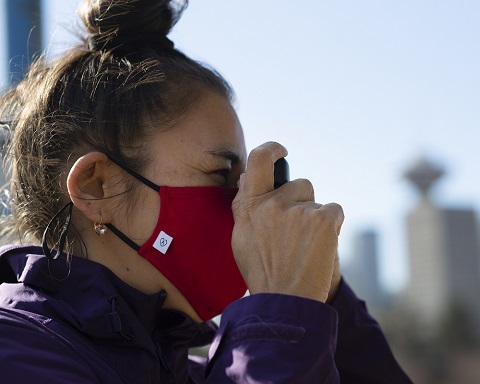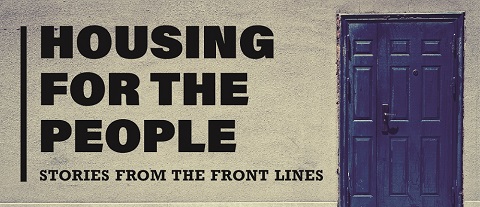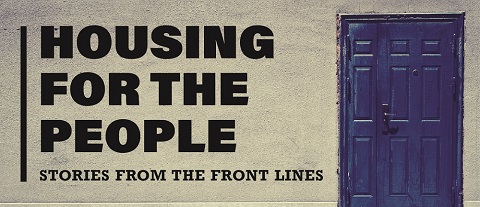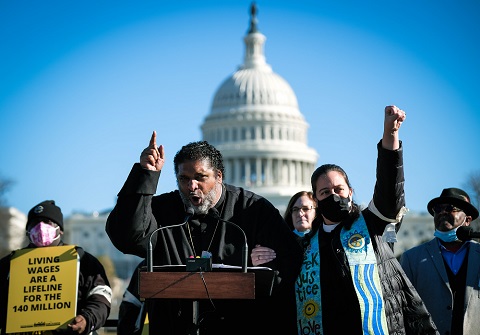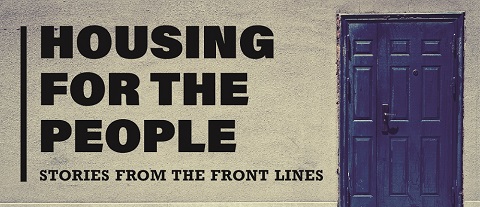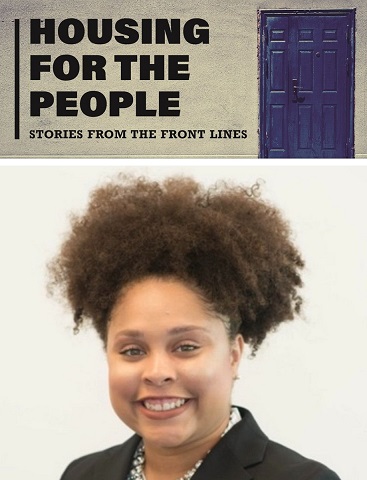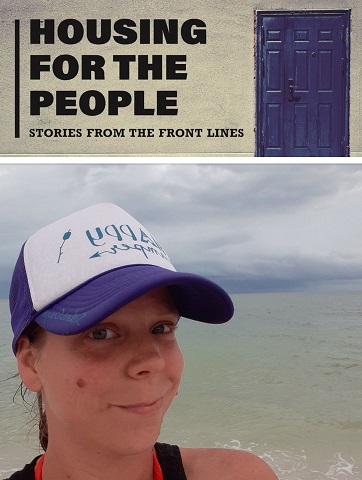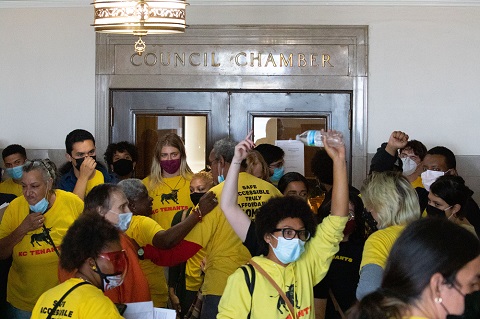By Sophie Maziraga, Street Roots
My first encounter with the protests following the police killing of George Floyd in Minneapolis was on 3 June, and it was accidental. I went to the Tom McCall Waterfront Park [in Portland] to sit and enjoy a late lunch. Then I walked onto the Burnside Bridge. That was where I saw hundreds, if not a thousand, of people marching. I joined in.
There are few of us, in terms of Black women in Oregon. Let alone those attending these recent events.
I was unprotected and unprepared for what was to occur. A lady handing out Gatorade to the crowd advised me to write down my emergency contacts for bail in the event the police arrest us. I wrote them on the right side of my ankle, one of the only exposed parts of my body.
I spent the following week attending rallies and demonstrations held by various organizations in support of the end to police brutality and the racism that plagues the Black community.
On Friday (5 June) afternoon, I listened to a variety of powerful speakers from the Portland NAACP and other demonstrators in East Portland. That evening, I observed another rally held right next to the Justice Center in downtown Portland. The building was blocked off with militarized police inside and boarding behind the fence. On our side of the fence, protesters chanted.
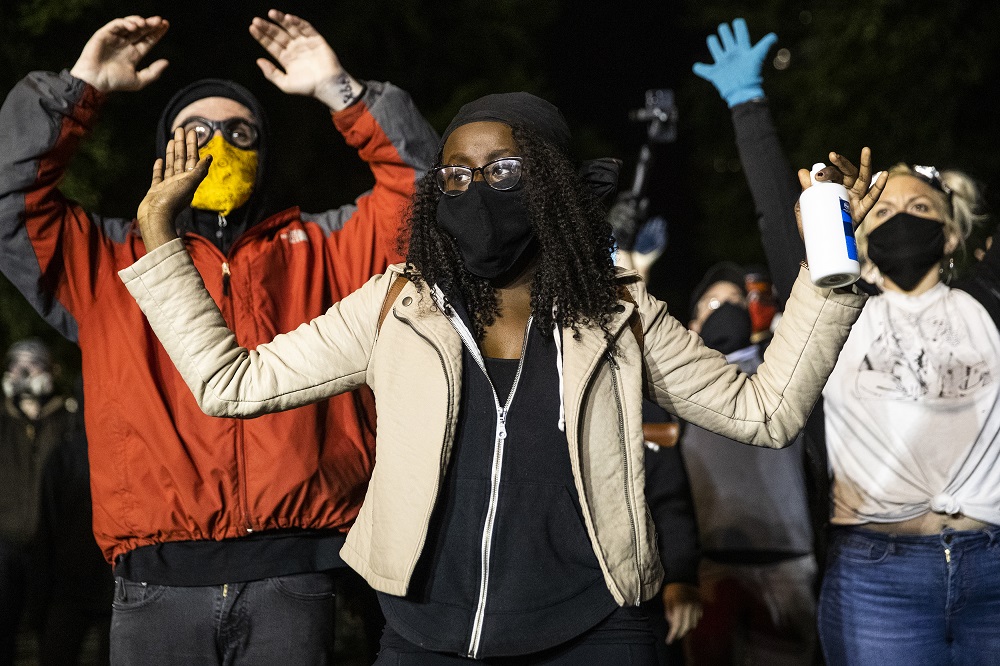
As the protest lingered, I witnessed several white or white-passing individuals throw a number of things over the fence, such as firecrackers, water bottles and flowers.
Someone in the crowd handed me a bottle of saline and warned me that we might have chemical weapons tossed our way.
Minutes passed, and police became readily agitated. They began selectively firing rubber bullets at people in the crowds. Without having thrown anything, my hands in the air while holding saline, I was struck in the abdomen with a rubber bullet.
As I collapsed, I looked around; white and white-passing counterparts did not stop to help me. A few minutes passed before a protest medic came to my aid, offering Band-Aids, gauze and rubbing alcohol.
Upon standing with the support of the protest medic crew, I thought of Shantania Love, a woman from Sacramento who was struck in a similar fashion. Only her injury made her blind in one eye.
After rubber bullets were shot at us, mace and then tear gas followed. It’s possible other peaceful protesters were hit as well; however, my frame of mind narrowed as I was in shock. I didn’t have the ability at that time to check to see how many individuals were struck.
Luckily, I’m recovering physically. The mental impact may last a lifetime. Surviving police brutality is a different type of trauma known to an endless number of Black people. A trauma that puts us under insurmountable duress. I fear death could be the result of being present at a protest calling for human rights for people with my skin colour.
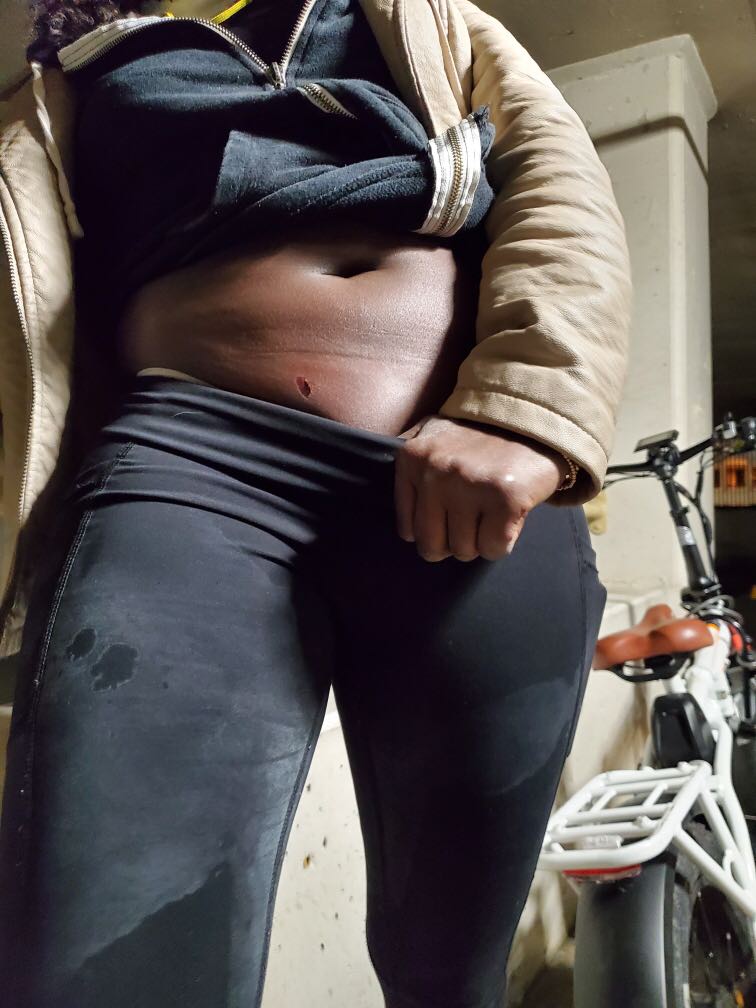
The use of excessive, unnecessary force is absolutely detrimental to the Black lives movement. Not every conflict calls for a weaponized response.
Back in February, I became a board member of the Portland Police North Precinct Equity and Inclusion Advisory Committee, which the bureau claims holds law enforcement accountable for equity. There was nothing equitable about Portland Police Bureau’s actions. Innocent observers were struck. I was one of them.
A few days after I was hit, this belief hit me: The Portland Police Bureau cannot be reformed. Believing the bureau can be reformed is akin to believing the heinous Nazi Party could somehow adjust their principles and values from within and become reformed.
No, that’s not how it works. The Portland Police Bureau must be dismantled. If Black lives truly do matter, we need to completely defund police and reinvest those funds into Black communities, mental health services and social service programs — programs such as Portland Street Response, which will soon emerge as a pilot project. With a service such as this one, the community can rely on first responders to address their needs in a trauma-informed manner.
Justice is mixed with mercy. Abuses of power by those hired to uphold the law is by no means merciful. Cops ought to no longer act as the judge, jury and prosecutor with the penalty ending in grave pain and/or death.
Sophie Maziraga is a first-generation Ugandan American. She is the vendor program coordinator at Street Roots, and she is passionate about advocating for mental health, women’s rights and socio-economic justice.




